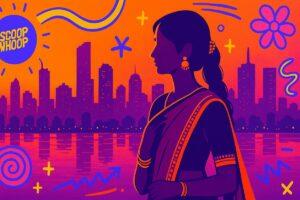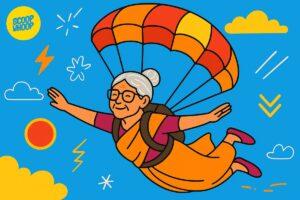It’s no secret that women have not been dealt a fair hand by the patriarchal society. From fighting for basic rights to demanding dress with pockets, women have been raging a battle against sexism, double standards, and toxic masculinity for years now.
Here’s a look at the celebrities who’ve used their respective platforms to drop truth bombs like a pro:
1. When Carrie Fisher proudly declared what most women feel about bras.
2. When Cher clearly stated that women don’t ‘need’ men to be successful, rich, or famous.
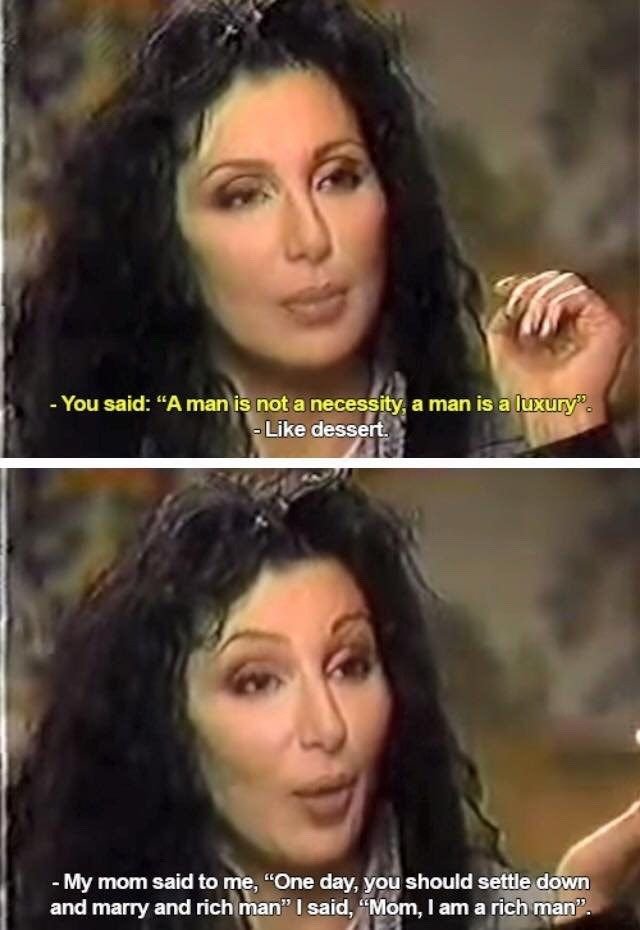
Years later, Rihanna too reiterated the fact that women don’t need men to feel complete.
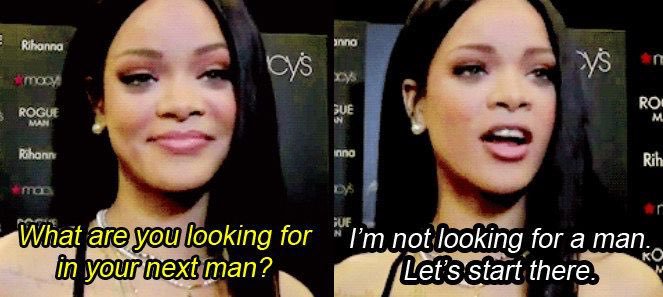
3. When Meryl Streep took on ageism in the industry like a pro.
And not just Meryl Streep, Indian actors like Sharmila Tagore, Ratna Pathak Shah, and Neena Gupta have also drawn attention to the prevalent ageism in the industry.
So many scripts are written for elderly male actors; these things are not happening for female actors. The girls have to be very young and the man can carry on forever. One has to accept that life doesn’t stop there (at a young age). In my time, life stopped at 30 or 40, but it doesn’t have to because life carries on and there are a lot of interesting phases in life which they (the audience) might like.
-Sharmila Tagore to Business Stadard
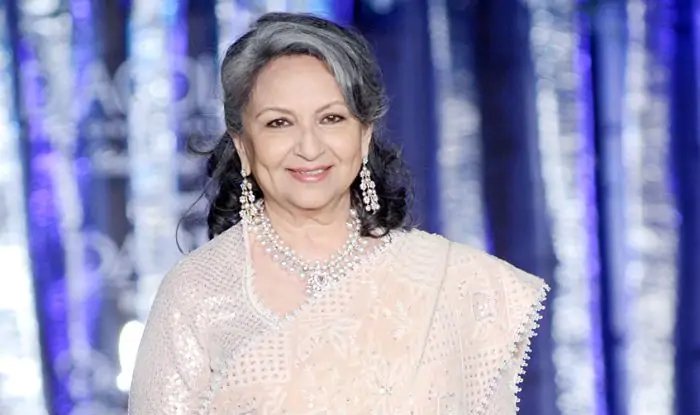
Yes i was just thinking about this hamari umar ke role toe kamsekam humse kara lo bhai https://t.co/6Fmrxn0HbE
— Neena Gupta (@Neenagupta001) September 24, 2019
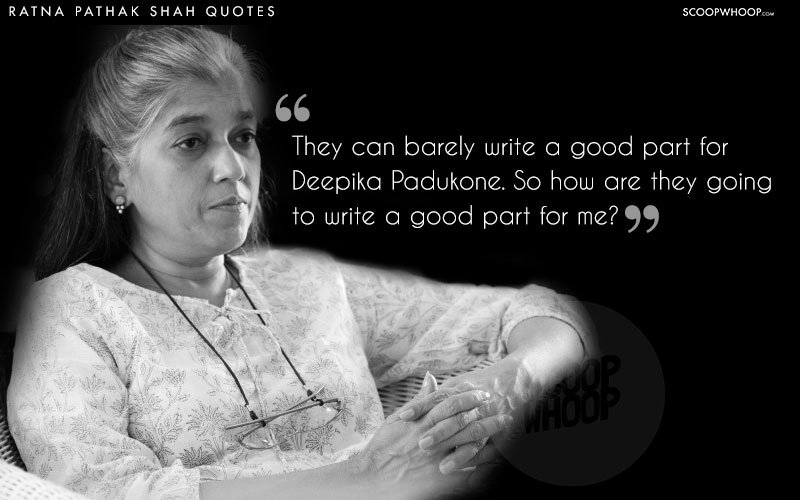
4. When Ratna Pathak Shah reminded the world that patriarchy affects both men and women.
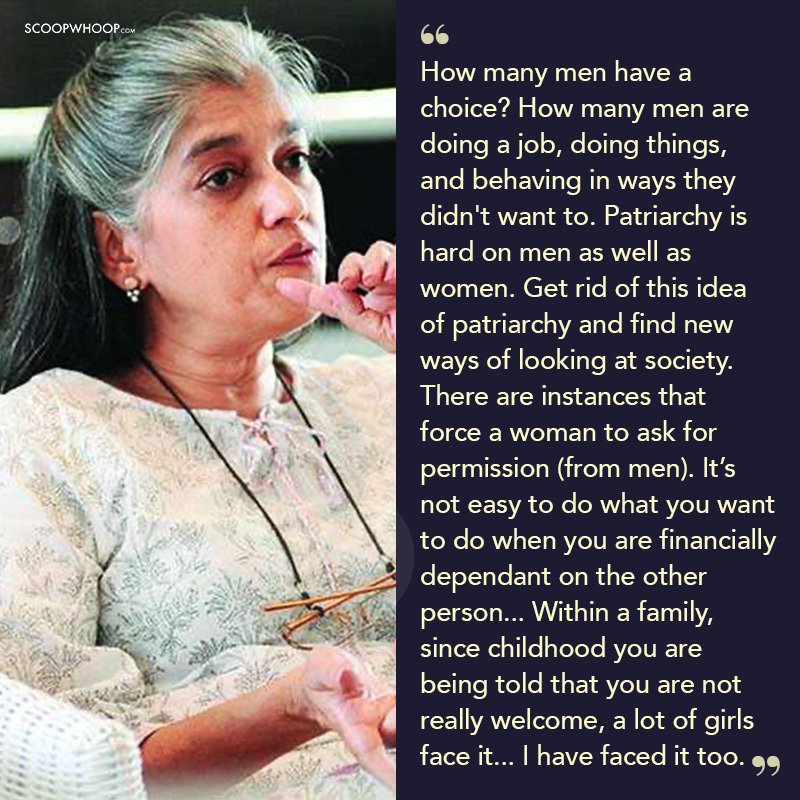
6. When Anushka Sharma brought up the prevalent wage-gap and gender disparity that exists in the industry.
It is very very unfair that we get paid the way we do. I think the disparity is way too much. We get paid like one-fourth of what the men get paid. Secondly, our careers are much shorter… A male actor might not be on the same level as you, but just because he is an actor he will get paid more than you. I wouldn’t be surprised if an A-list actress is getting paid the same or lesser than maybe one of the newer guys who are coming in the industry. Like a Varun or something, I wouldn’t be surprised. So that is not fair… You have a film like Queen that works only on Kangana and the story or Mardaani or NH10. So the heroine is important. One needs to realise it’s just not the industry but people are like this. And it’s everywhere. And especially in our country that’s the way it is. This is how women are looked at. We are not treated as equal professionals. You know between Ranbir and Katrina, Katrina will always be asked way more questions about her relationship with Ranbir and he will be asked way more on his work and what he is doing. That’s the way it is. You’re not given that kind of equal respect.
-Anushka to DNA
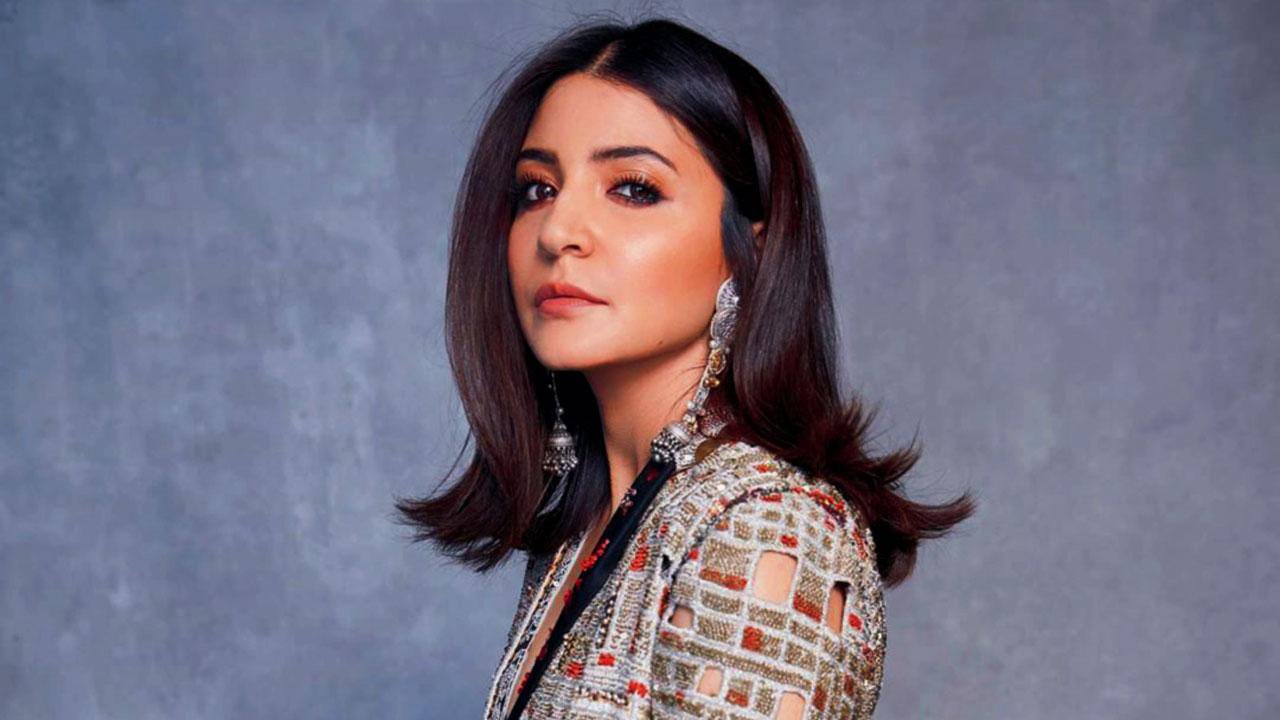
7. When Sania Mirza called out the idea that a woman is only “settled” when she is married with kids.

8. When Deepika Padukone admitted to being depressed and helped destigmatize mental health issues.
9. When Priyanka Chopra broke down what feminism and gender equality mean so that even the dummies would understand.
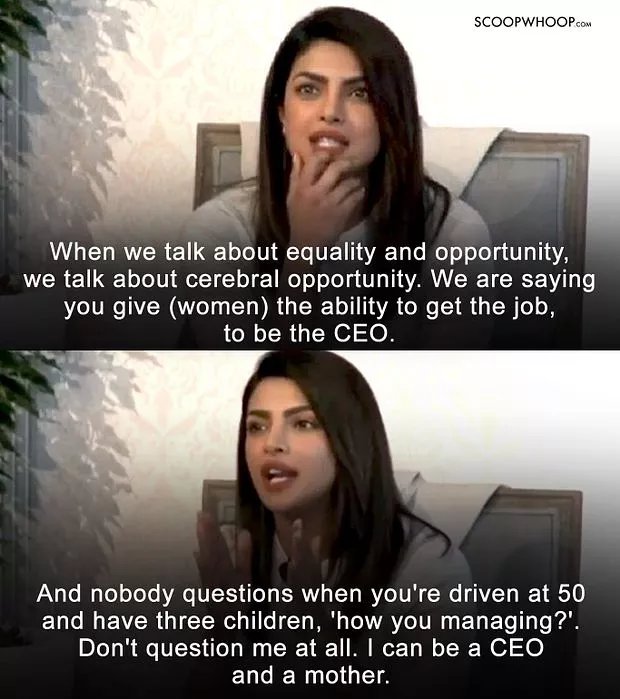
10. When Katrina Kaif called out the media industry for reducing a woman’s worth to who her partner is.
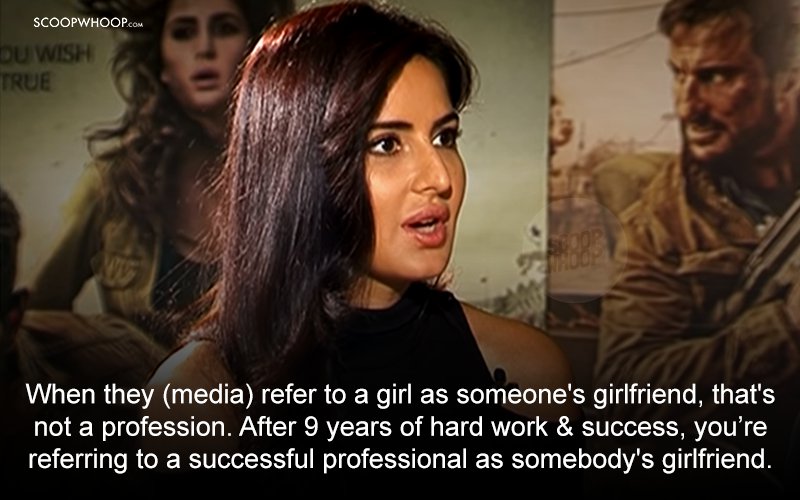
11. When Meghan Markle shed light on the pain of miscarriages and called out society for making it a taboo subject.
Losing a child means carrying an almost unbearable grief, experienced by many but talked about by few. In the pain of our loss, my husband and I discovered that in a room of 100 women, 10 to 20 of them will have suffered from miscarriage. Yet despite the staggering commonality of this pain, the conversation remains taboo, riddled with (unwarranted) shame, and perpetuating a cycle of solitary mourning. Some have bravely shared their stories; they have opened the door, knowing that when one person speaks truth, it gives license for all of us to do the same.
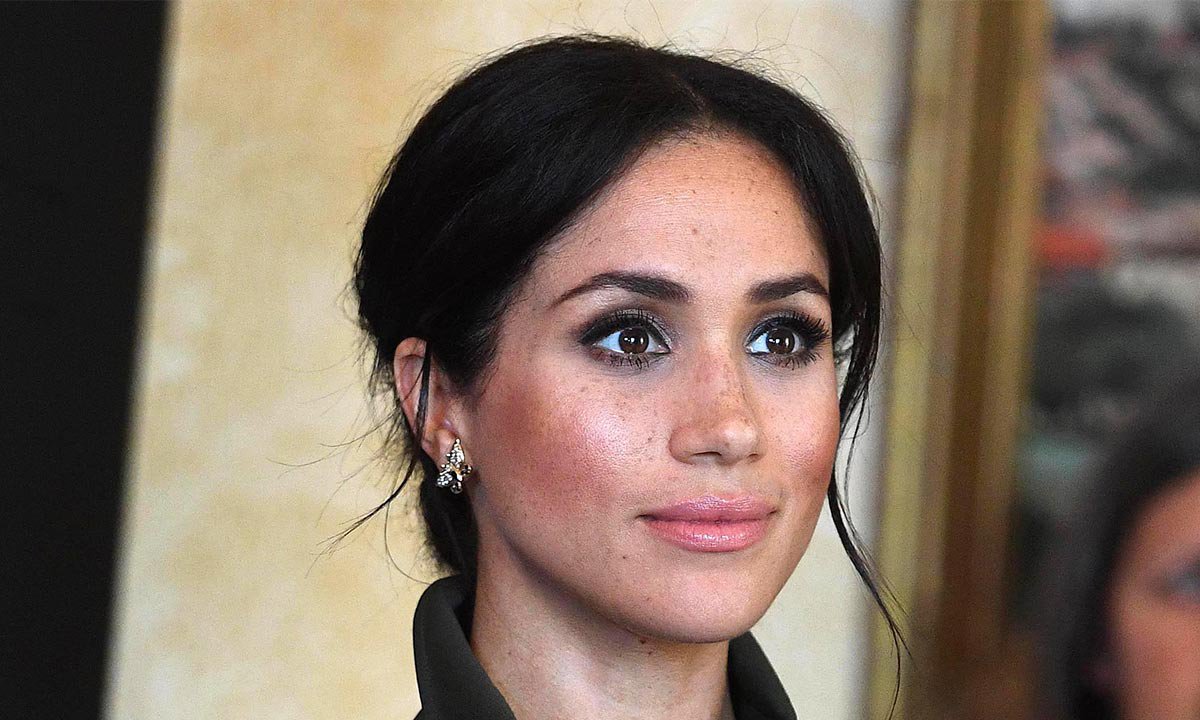
12. When Jacinda Ardern made it crystal clear why motherhood should not hamper women’s career prospects.
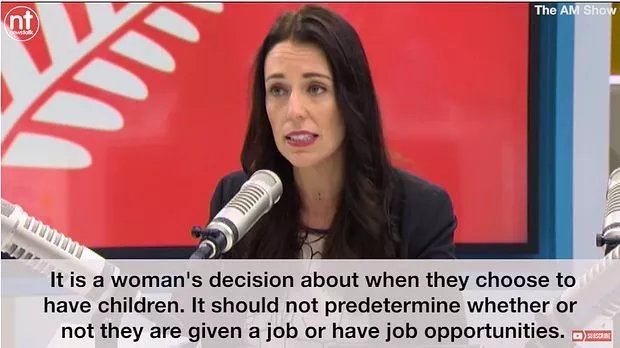
13. When Parineeti Chopra refused to let menstruation, a natural biological process, be referred to as ‘problems’ and helped break the illogical stigma around it.
14. When Kareena Kapoor called out the media for treating her pregnancy as a “national casualty”.
I’m pregnant, not a corpse. And what maternity break? It’s the most normal thing on earth to produce a child. It is high time the media back off, and stop treating me any different than I ever was. Anybody who is bothered shouldn’t work with me… but my work goes on as is, like always. Stop making it a national casualty. We are in 2016, not in the 1800s. Probably, even at that time, people were way more civilised and normal than the way the media is behaving and speculating now. I’m just fed-up of people making it (her pregnancy) to be a death of some sort. In fact, it should be a message to a lot of people that marriage or having a family has absolutely nothing to do with my career.
-Kareena to HT
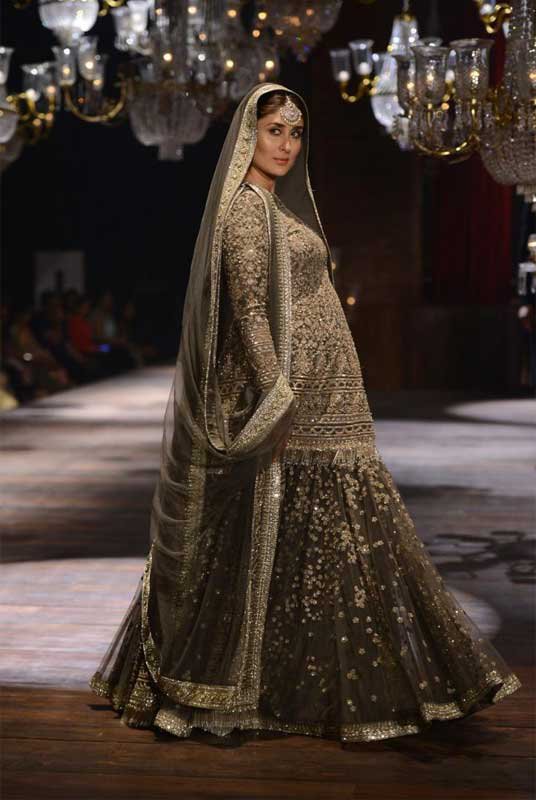
15. When Kim Cattral talked about how motherhood does not *have* to be a choice for every woman.
In my middle to late 30s, when most of my girlfriends were married and having babies, I wasn’t having any luck finding a partner… I was feeling both the social pressures and my own biological clock ticking… I also thought that without having children, I’d be missing something unique to being female. (But) I realized that so much of the pressure I was feeling was from outside sources, and I knew I wasn’t ready to take that step into motherhood.
-Kim Cattral to Oprah Magazine
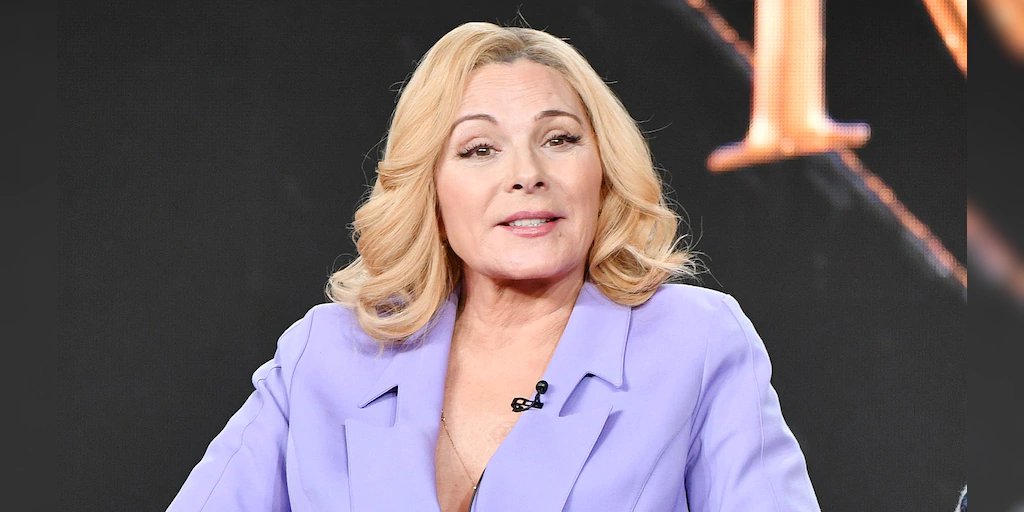
16. When Gul Panag reminded the world that the “right age” to have children was the age you felt ready.
Having a baby is a very significant step in life, and like marriage, you should think it through carefully before committing to it. Have children when you are ready to welcome them and can raise them happily and responsibly, not when society says you must.
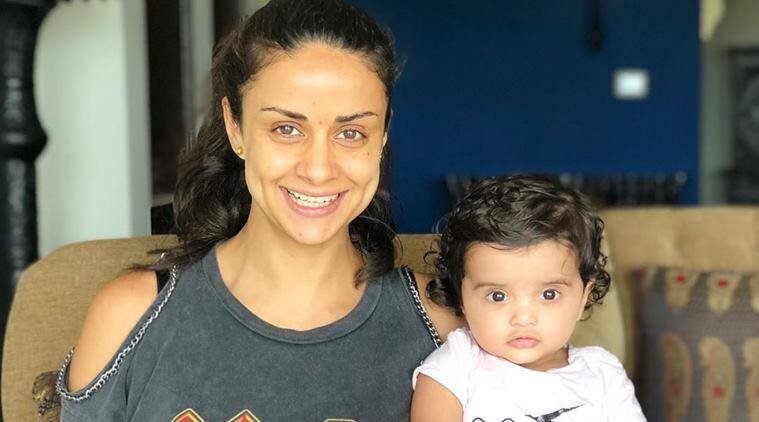
Even Priyanka Chopra called out society’s unnecessary concern with women’s ‘biological clocks’.
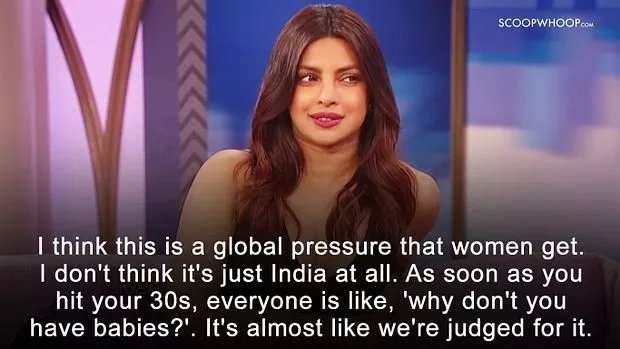
17. When Sameera Reddy threw light on post-partum depression. Because motherhood is not always a bed of roses.
18. When right back in 1975, Helen Mirren reminded the world, and her grossly sexist interviewer, that female actors should be judged for the skills and not their looks.
Parkinson asked Mirren if she believed her “equipment” hindered her from being considered a ‘serious actress’. Not only did Mirren shut him down in style, but she also stated that a woman’s looks, and her performance, are not directly related.
Serious actresses can’t have big bosoms, is that what you mean?… I mean what a crummy performance if people are obsessed with the size of your bosom over anything else. I would hope that the performance and the play and the living relationship between all the people on the stage and all the people in the audience would overcome such . . . boring questions, really.”
Absolute queens indeed!





